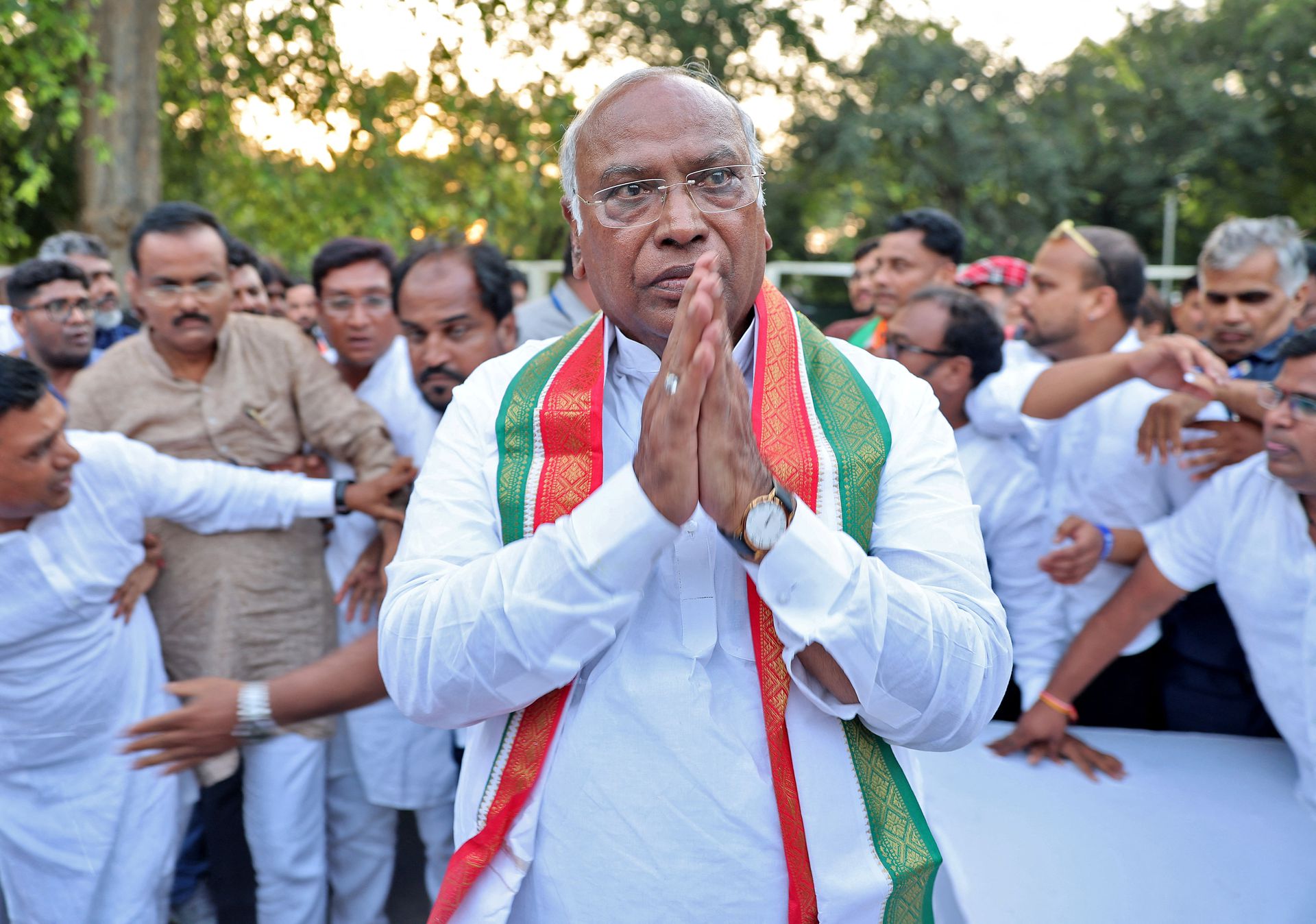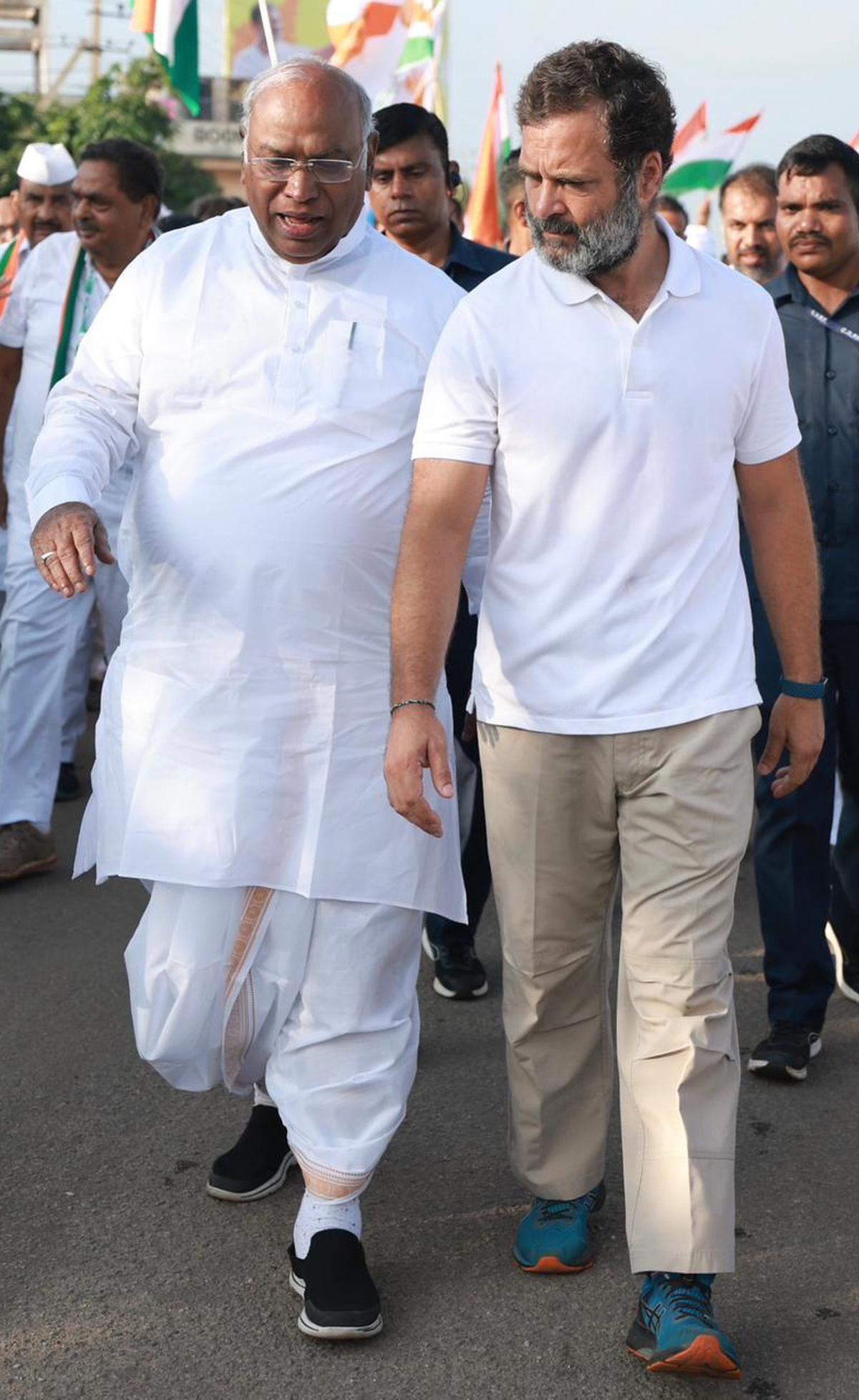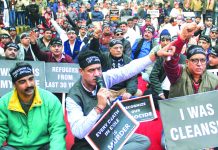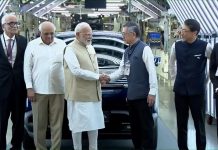
His experience in dealing with the regional parties as
Leader of the Opposition in Parliament may come in handy for the new Congress president in putting together a broad opposition front against the ruling BJP ahead of the 2024 national polls, writes Amit Agnihotri
Mallikarjun Kharge, 80, who took over the baton from Sonia Gandhi, 75, faces an uphill task in reviving the Congress as its president ahead of the 2024 national elections.
The Congress had lost the 2014 and the 2019 Lok Sabha polls and is trying hard to take on the ruling BJP in the 2024 national elections.
To achieve that objective, the party had launched the nationwide Bharat Jodo Yatra from Kanyakumari in Tamil Nadu on September 7. The 3,500 km yatra from south to north India is being led by former party chief Rahul Gandhi and is getting a huge public response.
Alongside, the grand old party also conducted the polls for the post of president after a gap of 22 years. The last presidential contest took place in 2000 when Sonia Gandhi became party chief defeating Jitendra Prasada by a heavy margin.
Kharge, who resigned as the leader of the opposition in the Rajya Sabha defeated his rival, Thiruvananthapuram Lok Sabha MP Shashi Tharoor by a heavy margin.
As Congress president, Kharge would primarily be tasked with strengthening the organization and coordinating with the like-minded opposition parties to build a national forum against the BJP for the 2024 Lok Sabha polls.
The new arrangement would mean that Rahul will be the leader of the Congress while Kharge would run the organization.
Kharge’s election to the top party post is also important as a non-Gandhi has taken over the reins of the Congress after a gap of 24 years.
The last non-Gandhi party chief was Sitaram Kesri, who was elected to the office by defeating Sharad Pawar and Rajesh Pilot in 1996. However, during Kesri’s tenure, the party suffered from factional fights prompting Sonia Gandhi to take charge of the Congress in 1998.
Sonia ran the party till 2017 when she passed the baton to her son Rahul Gandhi who was elected party chief unopposed.
Rahul resigned from the post in 2019 taking responsibility for the party’s Lok Sabha poll loss. Sonia was then brought back as interim chief till the party had a full-time elected president.
Over the past months when the polls were announced, there was speculation that Rahul would agree to assume the party president’s role again but the Wayanad MP refused to file his nomination papers saying it was time a non-Gandhi took charge of the grand old party.
Tharoor, who had been talking about internal elections since 2019, had expressed his desire to contest the polls but was never seen as someone who had the backing of the Gandhis.
In contrast, Kharge was widely perceived to enjoy the blessings of the Gandhis though the Congress had denied that the veteran was the party’s official candidate.
Central Election Authority chairman Madhusudan Mistry clarified that “there was no official candidate” and urged the state units to accord similar courtesies to both the candidates.
Mistry also asked the AICC office bearers and spokespersons to resign from party post if they wished to campaign for either candidate. The CEA chief also asked the AICC in charge of states to vote either in their home states or at the national headquarters so they were not able to influence the polling on Oct 17.
He also ensured that the voting took place through a secret ballot to protect information about the choices made by the over 9000 PCC delegates who formed the electorate for the key polls. The CEC had issued special QR code-based identity cards to all the PCC delegates to ensure a transparent election.
The counting of votes took place on October 19. The total votes polled were 9,385. Kharge got 7,897 votes while Tharoor got 1,072 votes. There were 416 invalid votes. Kharge took charge on October 26 in the presence of the Gandhis and the top brass of the party from across the country.
The choice
Initially, Sonia Gandhi had chosen Rajasthan chief minister Ashok Gehlot as her successor but later opted for Mallikarjun Kharge at the eleventh hour.

Gehlot dropped out of the presidential race after he failed to get a one-line resolution, authorizing Sonia to decide the next Rajasthan chief minister, passed by the party MLAs.
The MLAs loyal to Gehlot rebelled when Kharge had gone to Jaipur on Sep 25 as an AICC observer to ensure the change of guard. The rebels were against Sachin Pilot getting the chief minister’s post and wanted someone from their own camp as Gehlot’s replacement.
Shocked by the Rajasthan rebellion, Sonia asked veteran Digvijay Singh to remain on stand-by as a presidential nominee but finally chose Kharge for the key post.
Digvijay withdrew from the race paving the way for Kharge who filed his papers on September 30, the last day for filing of nominations, hours after Tharoor submitted his documents to the CEA.
A third person KN Tripathi from Jharkhand too had filed his papers for the top party post but his documents were rejected by the CEA, leaving Kharge and Tharoor in the fray.
Right from the beginning, Kharge appeared to have an edge over his rival who kept saying that there was no level playing field in the internal polls. Notably, most of the party veterans had come out in support of Kharge while Tharoor was left to manage his own campaign.
In Tharoor’s words, he did not get the kind of reception that Kharge enjoyed from the various state units. On his part, Kharge avoided responding to the charges.
Yet, both the candidates pointed out that it was a friendly fight between two party leaders and irrespective of who won, the Congress would emerge stronger.
Humble origins
Kharge, who has a five-decade old public life, comes from a humble Dalit background. He started his political career in 1972 when he became an MLA and went on to win nine terms in the Karnataka assembly till 2009. Then he got into the Lok Sabha from 2009 to 2014. He was the leader of the opposition in the Lok Sabha from 2014-2019. He was shifted to the Rajya Sabha in 2020 and made the leader of the opposition in the upper house in 2021.
Kharge has rich administrative experience as he served as a minister both at the state and Centre and headed the crucial labour and employment ministry during the previous UPA government.
Since 2021, he has been coordinating the opposition strategy in Parliament and playing a role in keeping the like-minded parties together.
His experience in dealing with the regional parties would come in handy as Congress president ahead of the 2024 national polls when the grand old party aims to forge a big anti-BJP front.
Linked to that aim is the revival of the Congress where Kharge would have to work closely with Rahul who is leading the party’s largest-ever mass contact program.
Kharge’s story represents the rise of an ordinary Dalit boy to the post of the Congress president and would help the opposition party project its inclusive character.
Internal democracy
In his post-election address to the media, Kharge said that his election had presented an example on how to strengthen democracy in the country.
Kharge appreciated Sonia’s sacrifice for the party and recalled how she revived the party and brought it to power at the Centre in 2004 and again in 2009. The veteran appreciated Rahul’s yatra saying the entire country was associating with the foot march.
He appealed to the workers to support the yatra wholeheartedly and noted that all were equal before him.

Targeting the BJP, without naming the party, he said that the Congress needed to fight the fascist forces who come under the garb of communalism and said the grand old party would have to defend the Constitution and democracy, which were under attack.
As Congress president, Kharge said his focus would be on fighting the challenges like unemployment, price rise and growing economic disparities in the country.
Tharoor had billed the election as change vs status quo and Kharge’s election to the top party post has indicated that there may not be any drastic changes in the party although the veteran had promised to implement the Udaipur Declaration which stipulated that 50 percent of all office bearers would be below 50 years of age, there would be one person, one post norm and only one person from a family would get a ticket in elections.













